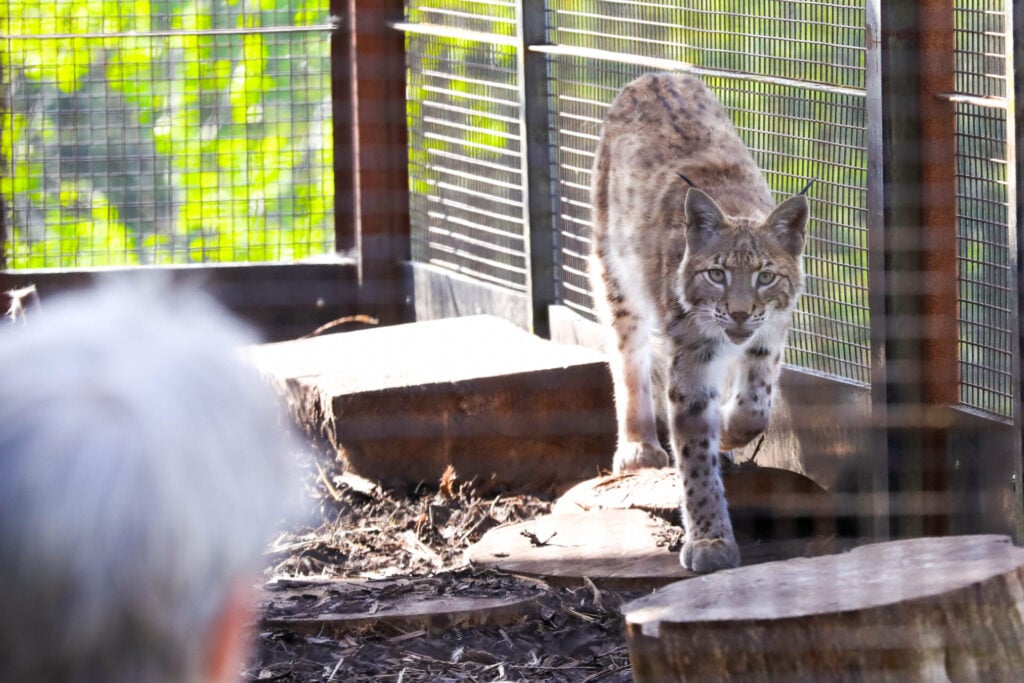Whether to have a second or third child has typically been a question of money – a particularly acute question given the cost of living crisis – and maybe the mother’s childbirth experiences to date. Yet several polls of the last two years have suggested that around one in 10 people in their early 20s are planning to not have children at all, in order, they say, to reduce overpopulation and in turn, protect the environment.
Because if the end of civilisation has, in fiction at least, resulted from asteroid strikes, alien invasion, nuclear war and the like, it’s been posited that a more likely cause will be overpopulation. That, it’s suggested, will lead to a collapse of food and water resources and a pretty awful world for tomorrow’s children to live in. After all, a study by American investment bank Morgan Stanley 2021 reckons that having a child is seven times worse for the climate in terms of CO2 emissions than ‘the next 10 most discussed mitigants that individuals can do’.
And then there’s the human impact on bio-diversity. The thinking seems to be: don’t have a (or another) baby – and save the planet. That may seem all the more pertinent a notion as the global population has just tipped the 8 billion mark.
For the majority of people, having children is still a hoped for and fulfilling (if challenging) part of what it means to have lived. And there’s a sadness in the idea of a generation – who may well feel differently when they’re older, of course – consciously cutting themselves off from this potential joy. But are they right? Is overpopulation a genuine cause for concern?

That certainly isn’t a new idea. First pondered by influential economist and scholar Thomas Malthus in the 18th century, and, more recently, by the demographer Paul Ehrlich, who rebooted the disaster movie mood back in 1968 with his book ‘The Population Bomb’, they claimed we wouldn’t be able to feed the mass population in the future.
‘The battle to feed all of humanity is over,’ the film intoned. ‘Hundreds of millions of people are going to starve to death’. That didn’t come to pass, but it did inspire an anti-population-growth offensive around the world, with some unpleasant outcomes, too. In Mexico, Peru, Bolivia, Indonesia and India, among other places, millions of people were sterilised, sometimes forcibly. China’s ‘one-child policy’ led to an estimated 100 million forced abortions.
‘The thing is that we just don’t want to point the finger at people and talk about their population issues. The green lobby won’t talk about population but it’s the elephant in the room’
Robin Maynard, Director of the Population Matters
Restraining population growth is still being argued for albeit not by these methods, of course. ‘Population growth is catching up with us now. We’ve held it off but we can’t do that forever – biodiversity is falling off a cliff, and there will be food shortages even if middling estimates of population growth are taken,’ argues Robin Maynard, director of the Population Matters campaign group. ‘Every person added to the total – whatever their consumption level – adds to the total problem. The thing is that we just don’t want to point the finger at people and talk about their population issues. The green lobby won’t talk about population but it’s the elephant in the room.’
That seems to be the case given the numbers. The United Nations estimates there will be 10 billion of us by mid-century, with some nations expected to see awesome population spikes: the populations of Nigeria and the Philippines, for example, are expected to double by 2050. The biggest booms are expected in the poorest countries. And yet the populations of Italy and of China, in contrast, are expected to halve by the end of the century. That’s a pattern repeated across much of the developed world.
Underpopulation v Overpopulation
Indeed, what matters, other demographers argue, is not the expected growth in the absolute number of people – which they attribute to the time lag common to population shifts, by which more births than deaths are recorded for a while, even as fertility rates decline, but rather replacement levels.
This is the number of births needed for a population to replace itself from one generation to the next without immigration. That’s around 2.1 children. And right now, globally, the average number of births per woman is, at 2.3 – just above the replacement rate. In many developed nations it’s way below replacement level. In fact, the overall global population growth rate peaked in the early 1960s and is now less than one per cent a year. So here’s the twist: the problem, if not for the planet, then for humanity, might actually be an impending collapse in the number of people, not that there are too many.

‘There is a very apocalyptic version of this in which the norm becomes for women to not have a enough children to sustain the population,’ suggests Christopher Murray, the founding director of demographic research body, the Institute for Health Metrics and Evaluation. ‘And in just a few hundred years we could be down to very small numbers. You might, as some do, think that if the world population drops to say, 2 billion, that’s better for the environment. But then some very serious changes to the culture would be required to stop it going down to 1 billion, and then 500 million, and so on.’
‘What we’re seeing is a fundamental cultural change. But somebody has to have kids or we all go away. Arresting population decline may be a matter of national survival in some instances’
Darrel Bricker, CEO of Ipsos Public Affairs
The fewer women who have children, the fewer women there will be to have children later – and so on – leading human populations into a potential death spiral. That’s why the likes of Darrel Bricker, CEO of Ipsos Public Affairs and co-author of ‘Empty Planet: The Shock of Global Population Decline’, is not alone in arguing that the real population problem coming around the corner is less environmental, as economic. With declining numbers of people, economies decline in turn: who will do all the work; who will care for the elderly; who will bring the next big innovations?
‘There was a time when the dystopian picture of a growing population’s impact on the environment was accurate, but things have changed. The human footprint has actually contracted because more of us live in cities,’ Bricker argues. ‘What we’re seeing is a fundamental cultural change. The fact is that, if having kids has been portrayed as being part of a full life, most people are pretty full after two. But somebody has to have kids or we all go away. [In the meantime] arresting population decline may be a matter of national survival in some instances.’
Perhaps this is why the IPCC doesn’t actually recommend any interventions when it comes to population numbers, arguably underscoring that what can feel intuitively right – fewer people must be better for the planet – isn’t necessarily so.
That’s because when women have fewer children, they also feel financially better off. And what do they do with that money? They consume more. So the problem is less one of how many people there are in total, so much as the lifestyles of the fewer but richer people. And it’s a problem compounded by the fact that most people want to live financially better lives. It’s why the likes of Australia, China, Singapore and the Scandinavian nations have all launched various schemes to incentivise couples to have more children, all, more or less, with no luck.
This brings us back to our initial question: should you have more – or any– children? You may choose to leave this decision to demographers, though they are clearly not in full agreement. Better to choose for yourself. But don’t assume that having fewer children is best for the future of the environment or of humanity. You may conclude the right thing to do is actually to make babies, and then make some more.













